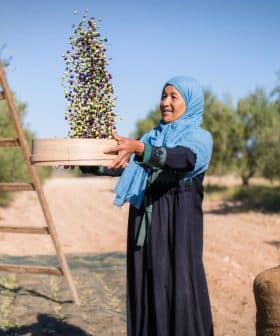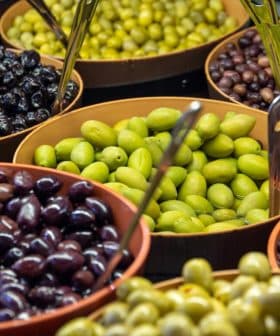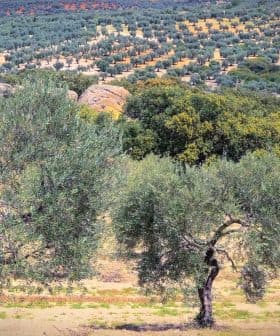 5.6K reads
5.6K readsNews Briefs
Tunisian Olive Oil Prices Keep Climbing

The olive harvest in Tunisia for the 2022/2023 season is progressing faster than usual but is expected to yield significantly less than the previous year, leading to a sharp increase in olive oil prices in the country. Due to factors such as drought and arid climate affecting olive production, Tunisia is facing challenges in water availability for irrigation, prompting the government to plan the construction of new reservoirs and desalination plants by 2025 to address the issue.
The olive harvest in Tunisia is proceeding faster than in previous seasons. Still, the current 2022/2023 campaign will yield considerably less than last year, causing a significant rise in Tunisian olive oil prices.
In its newly released bulletin, the Olive Oil National Office (ONH) noted that prices in November and December rose steadily in Sfax. A liter of olive oil in December cost an average of €4.52, a new record for the local product.
The National Observatory of Agriculture (Onagri) noted that olive oil prices in December 2022 had doubled compared to the same period last year.
While Tunisian consumers cherish olive oil, most local production goes to the international markets. In 2021/2022, the country exported 205 thousand tons of olive oil when its overall production was 240 thousand tons.
See Also:Rising Olive Oil Prices, Exports Help Sustain Tunisian Trade BalanceAccording to International Olive Council (IOC) figures, in 2021/2022, Tunisia consumed 30 thousand tons of olive oil.
Plagued by the production drop felt by important olive oil-producing countries and affected by the current dynamics of the vegetable oil market, the international olive oil market is keeping prices high, offering growing rewards for Tunisian exporters.
As reported by AfricanManager, Onagri estimated that in November 2022, Tunisian olive oil exports more than doubled in overall value compared to exports reported in the same month of the previous year, reaching TND 240.3 million (€72.15 million).
In its new bulletin, ONH has confirmed that almost 70 percent of the harvest has now been completed. The public agency estimates an overall olive oil yield of 180 thousand tons for the season.
The country’s public observatory expects local producers to collect 900 thousand tons of olives, 15 percent less than the previous year’s campaign.
According to ONH, the expected production drop is associated chiefly with the arid climate and the drought that hit the central and southern regions of the country, where most of the large olive farms operate.
The drought has affected Tunisia and large portions of the western Mediterranean Basin and Western Europe. It is also impacting local policies.
“The situation is dangerous because the drought began years ago. On average, dams are operating at 25 percent of their capacity, but some have dropped to 10 percent,” Hammadi Habib, official of the Ministry of Agriculture, told the local newspaper Zonebourse.
Such conditions weigh on water availability for irrigation and its price, triggering a continuous rise in production costs and stimulating food inflation in Tunisia.
Speaking to Reuters, Radhia Smine, the Tunisian Water Observatory’s official, urged authorities to declare a state of water emergency. “If we do not act now, we could end up thirsty. Thousands of families could find themselves with water shortages,” he warned.
In response to the challenging climate, the Tunisian Ministry of the Economy announced that it will work to set up new reservoirs and desalination plants by 2025.









